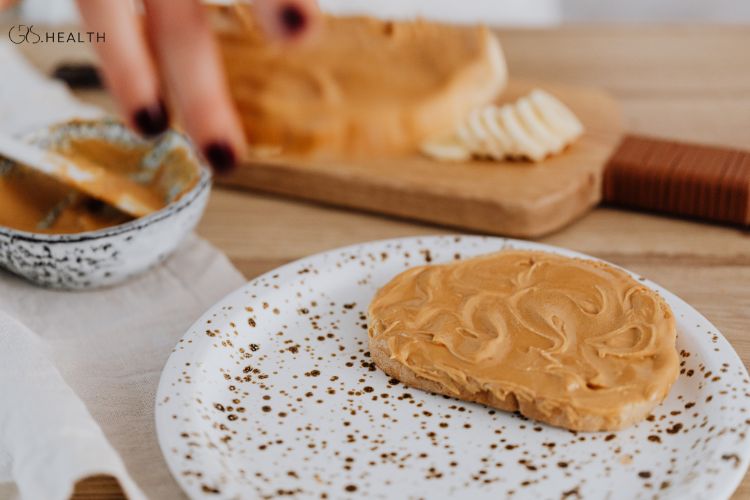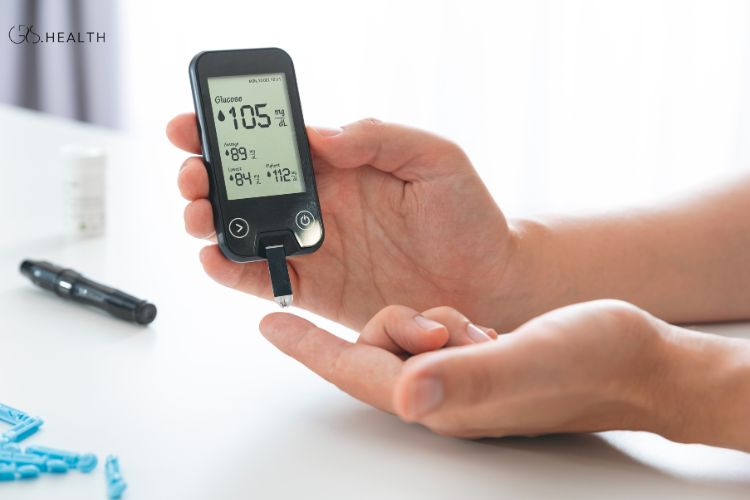Incorporating daily peanut butter into your diet can be an appealing prospect—a tasty spread, rich in flavor, and convenient to add to toast or snacks. But what really happens to your body when you eat peanut butter each day? This article explores the science behind regular peanut butter consumption: the nutrients you receive, potential benefits, risks, and how to include it sensibly in your diet. The focus is on friendly, reader-focused guidance grounded in recent research.
What Is Peanut Butter and Why Consider It Daily?
Peanut butter is a spread made from ground roasted peanuts, often with added salt, oils, or sweeteners. Nutritionally, it is rich in protein, healthy fats, fiber, vitamins, and minerals. For someone considering daily peanut butter, understanding its nutrient profile helps make sense of how it may affect your body. A typical serving of about two tablespoons provides approximately seven grams of protein and sixteen grams of fat, mostly unsaturated, along with small amounts of carbohydrates and fiber. Because of these attributes, eating daily peanut butter may help with satiety, muscle maintenance, and delivering micronutrients often under-consumed.

Nutritional Benefits of Daily Peanut Butter
Protein, Healthy Fats, and Satiety
When you eat daily peanut butter, the protein and healthy fats work together to promote fullness and support muscle maintenance. A serving of peanut butter contributes to muscle growth and repair because peanuts have more protein than many other nuts. The healthy fat profile largely monounsaturated and polyunsaturated fats—also helps keep you satisfied longer.
Vitamins, Minerals, and Antioxidants
Daily peanut butter delivers more than just macronutrients. It contains magnesium, vitamin E, niacin, phosphorus, and potassium. These nutrients play roles in cell repair, nerve and muscle function, and antioxidant defense. The resveratrol content and other polyphenols in peanuts may also contribute to antioxidant benefits, helping your body combat oxidative stress and inflammation.
Heart and Metabolic Health
Eating daily peanut butter may positively influence cardiovascular and metabolic markers. Studies show that peanut product consumption is associated with lower triglycerides and improved cholesterol ratios. The unsaturated fats in peanut butter can help replace saturated fats in the diet, which benefits LDL cholesterol and heart health. Regular inclusion of peanut butter may therefore support long-term heart health when consumed as part of a balanced diet.
Potential Weight and Blood Sugar Management
Because daily peanut butter is nutrient-dense and satisfying, it may help manage appetite and support weight control. The fats and fiber may also help regulate blood sugar by improving insulin sensitivity. For those wondering what happens if they eat peanut butter every day, there are clear benefits when it’s eaten in moderation and within a balanced diet.

What Happens in the Body When You Eat Peanut Butter Every Day
Eating daily peanut butter means your body is continually receiving a steady intake of the nutrients listed above. Let’s explore how your body responds across systems.
Digestive System and Satiety
When you eat daily peanut butter, the combination of fat, protein, and fiber slows digestion and helps you feel full longer. This can reduce snacking and overeating, promoting stable energy levels and better weight management.
Musculoskeletal and Metabolic Response
Regular intake of peanut butter supplies amino acids for muscle repair and maintenance, especially important if you exercise or age. The healthy fats and micronutrients support metabolism and cellular energy production. Over time, the cumulative effect of daily peanut butter may support better body composition and metabolic health.
Cardiovascular System
With daily peanut butter consumption, the unsaturated fats help improve blood lipid profiles and may reduce inflammation. Research suggests that regular peanut consumption can help lower triglycerides and improve the balance between LDL and HDL cholesterol, supporting long-term cardiovascular health.
Brain, Gut Microbiome, and Cognitive Health
Emerging research indicates that eating peanut butter daily may benefit the gut microbiome and brain function. Studies show that peanut products can enhance the growth of beneficial gut bacteria and improve cognitive outcomes in older adults. This suggests that daily peanut butter may contribute to brain health and gut-brain balance beyond basic nutrition.
Immune System and Inflammation
The micronutrients and antioxidants in peanut butter support immune health by reducing oxidative stress and inflammation. Components such as resveratrol and polyphenols may help strengthen the body’s natural defenses against disease when consumed regularly in moderate amounts.
Risks and Considerations of Daily Peanut Butter
While there are many potential benefits of daily peanut butter, there are also important considerations and risks.
Calorie and Portion Control
One of the main issues with peanut butter is its calorie density. A typical two-tablespoon serving provides about 190 to 200 calories. Eating large amounts every day without balancing your overall calorie intake could lead to weight gain. It should be eaten mindfully, not excessively.
Added Ingredients and Processing
Not all peanut butters are equal. Many commercial versions include added sugars, hydrogenated oils, or excess salt, reducing their nutritional value. These additions can turn a healthy food into one high in unhealthy fats and sodium. Choosing natural peanut butter made only from peanuts, and perhaps a small amount of salt, is the best option for daily use.
Allergy and Tolerance Issues
Peanut allergy is one of the most common food allergies and can be life-threatening. Even without a full allergy, some individuals experience intolerance leading to digestive discomfort. If you plan to eat daily peanut butter and haven’t done so before, monitor your body’s response and consult a doctor if you experience symptoms.
Contaminants and Food Safety
Although rare, peanut butter can occasionally be contaminated with bacteria such as Salmonella, or contain trace amounts of aflatoxins produced by molds on peanuts. These risks are low due to modern quality control but are worth noting, especially for those consuming it daily. Choosing trusted brands and checking for product recalls is a smart habit.
Nutrient Imbalance and Over-Reliance
Relying too heavily on daily peanut butter can crowd out other important foods. While it is nutrient-dense, it does not provide the full spectrum of nutrients needed for optimal health. To maintain a balanced diet, pair it with fruits, vegetables, whole grains, lean proteins, and other healthy fats.
Practical Tips for Eating Daily Peanut Butter Wisely
To get the most benefit from daily peanut butter and minimize any downsides, here are some helpful tips.
Choose the Right Type
Always opt for natural peanut butter with no added sugar or hydrogenated oils. Simple ingredient lists mean fewer processed additives and more nutritional purity.
Portion Control
Keep your serving around two tablespoons per day. This amount provides plenty of nutrients without adding excessive calories. Measuring your portions ensures balance and consistency.
Integrate with Balanced Meals
Enjoy daily peanut butter with whole grains, fruits, or vegetables to balance your meal with fiber and micronutrients. Combining it with these foods enhances nutrient absorption and helps maintain blood sugar balance.
Adjust for Energy Needs
If you are physically active or an athlete, daily peanut butter can help meet your energy requirements. If you have lower calorie needs, plan your overall intake accordingly to prevent excess calorie consumption.
(To learn more about maintaining a healthy cortisol balance, we invite you to read our article)
Monitor Your Body’s Response
Pay attention to how your body feels after regular peanut butter intake. Improved satiety and energy are positive signs, but if you notice digestive discomfort or skin reactions, reassess your intake or try different brands.
Rotate and Vary
Even if you enjoy daily peanut butter, occasionally include other nut or seed butters like almond, cashew, or sunflower butter for variety and additional nutrients.
Conclusion
Eating daily peanut butter can offer numerous benefits—from supporting muscle repair, satiety, and nutrient intake to enhancing cardiovascular, metabolic, and even cognitive health. However, moderation and product quality matter. Choosing natural varieties, managing portion sizes, and maintaining a varied diet ensure that daily peanut butter remains a healthy and convenient addition to your lifestyle.wFF
Sources
- WebMD, Peanut Butter: Is It Good for You?
- ScienceDirect, Functional components of peanuts (Arachis Hypogaea L.) and health benefits: A review
- BMJ Open, Effect of peanut butter supplementation on physical and cognitive
- Frontiers in Nutrition, Effect of Peanut Consumption on Cardiovascular Risk Factors
- Verywell Health, Is Peanut Butter Good for You?
- EatingWell, What Happens to Your Body When You Eat Peanut Butter Regularly










